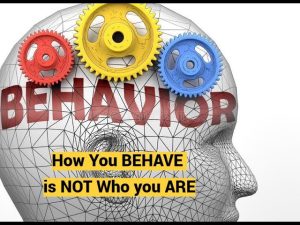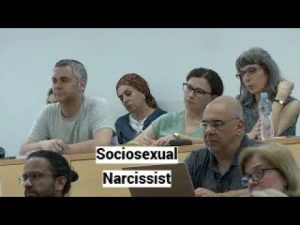Summary: Sadistic Pro-Social Narcissists Sadistic Narcissist
Definition and Characteristics of Narcissists
- The discussion started with an introduction to sadistic pro-social narcissists — individuals who appear empathetic and caring but are fundamentally manipulative and lacking true compassion [00:00].
- Narcissists lack an internal moral compass or conscience (no functioning super ego) and rely heavily on external validation and regulation from others to maintain their self-image and emotional stability [00:25].
- They are emotionally dependent on others and terrified of isolation, as their sense of self disintegrates without external stimuli and attention [01:04].
Inner Conflict and Sense of Injustice
- The narcissist experiences profound internal dissonance due to their extreme dependence on others conflicting with their self-perception of superiority, leading to a chronic sense of injustice and victimhood [02:00].
- They internally view themselves as superior and godlike yet recognize their object dependency on others, which they resent deeply [02:30].
Coping Mechanisms: Pro-Social or Communal Narcissism
- One coping mechanism is the pro-social or communal narcissist, who assumes roles as moral guardians, justice crusaders, educators, and champions of collective causes to justify their dependency on others [03:10].
- This type of narcissist portrays themselves as a cosmic or historical agent for change, claiming a grand mission that requires them to be connected to and serve the group or collective [03:40].
- Through this narrative, they resolve their internal conflict by rationalizing their dependence as necessary for the greater good and their leadership role [04:20].
Grandiosity and Aggression
- The narcissist adopts grandiose roles and claims to be the last defense against societal or cultural decline, which gives them the license to be harsh, strict, and unforgiving, potentially leading to violence or aggressive imposition of their will [04:50].
- Their external projection serves to silence internal self-critical voices by creating a false self that embodies these elevated and righteous roles directed at large groups or communities [05:30].
Relationship to Psychosis and Worldview
- Pro-social and communal narcissism shares traits with psychosis, particularly the tendency to expand self-importance outward to consume entire environments and collective identities [06:15].
- The world becomes a chessboard controlled by the narcissist, who dictates and enforces ever-changing rules under the guise of benevolence and tough love [07:00].
The False Self and Defensive Nature
- The false self constructed by the narcissist is a defensive mechanism to cope with internal voices of inadequacy and self-loathing, perpetuating a façade of compassion and love which is ultimately manipulative [07:40].
Timestamps are approximate and reflect the minutes and seconds into the transcript where the topics were discussed.






